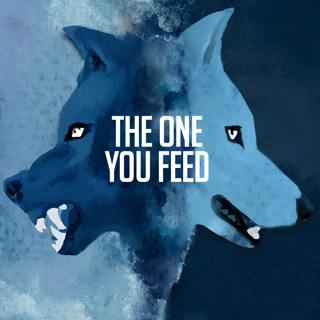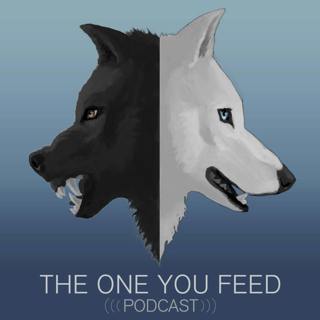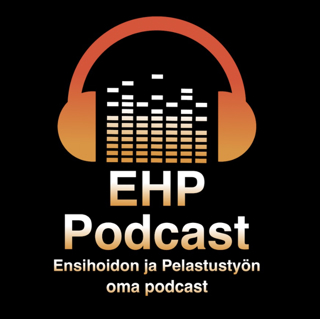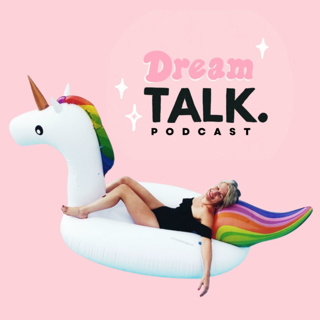
Embracing the Full Spectrum of Emotions: A Guide to Mindfulness and Self-Discovery with Tara Brach
In this episode, Tara Brach explores embracing the full spectrum of emotions, providing a guide to mindfulness and self-discovery. She helps us experiment with a variety of approaches that are guided by a simple compass intention. Tara also discusses stepping out of a trance, the tight story of what’s wrong with me or what’s wrong here, and in the direct experience, where kindness and awareness can flourish. If you’re ready for practical ways to be here, not perfectly, but more fully, this episode is for you. Key Takeaways: Meditation and mindfulness practices Emotional awareness and self-compassion Challenges in meditation and dealing with difficult emotions The metaphor of the two wolves representing good and bad aspects of ourselves Balancing acknowledgment of difficult emotions with cultivating gratitude and joy The impact of trauma on meditation practice and presence The importance of intention in meditation and personal growth Strategies for overcoming feelings of numbness and depression The concept of “trance” and its effect on perception and suffering Universal practices for awakening: awareness and compassion If you enjoyed this conversation with Tara Brach, check out these other episodes The Path of Aliveness: Exploring Mindfulness and Awakening with Christian Dillo Inner Freedom Through Mindfulness with Jack Kornfield For full show notes, click here! Connect with the show: Follow us on YouTube: @TheOneYouFeedPod Subscribe on Apple Podcasts or Spotify Follow us on Instagram This episode is sponsored by AG1. Your daily health drink just got more flavorful! Our listeners will get a FREE Welcome Kit worth $76 when you subscribe, including 5 AG1 Travel Packs, a shaker, canister, and scoop! Get started today! BAU, Artist at War opens September 26. Visit BAUmovie.com to watch the trailer and learn more—or sign up your organization for a group screening. LinkedIn: Post your job for free at linkedin.com/1youfeed. Terms and conditions apply. See Privacy Policy at https://art19.com/privacy and California Privacy Notice at https://art19.com/privacy#do-not-sell-my-info. Learn more about your ad choices. Visit megaphone.fm/adchoices
5 Syys 202551min

The Hidden Costs of Technology and Our Search for Selfhood with Vauhini Vara
In this episode, Vauhini Vara discusses the hidden costs of technology and our search for selfhood. She explains how we live in a world where technology functions as both a lifeline and a trap—offering connection, convenience, and possibility while also shaping our choices, exploiting our attention, and redefining how we see ourselves. Together, Eric and Vauhini explore the tension of relying on tools we can’t seem to live without, the subtle ways algorithms alter our communication, and what it means to hold onto authentic selfhood in the digital age. Feeling overwhelmed, even by the good things in your life? Check out Overwhelm is Optional — a 4-week email course that helps you feel calmer and more grounded without needing to do less. In under 10 minutes a day, you’ll learn simple mindset shifts (called “Still Points”) you can use right inside the life you already have. Sign up here for only $29! Key Takeaways: Exploration of the dual nature of technology as both beneficial and exploitative. Discussion on the impact of major tech companies like Amazon, Google, and OpenAI on personal identity and society. Examination of the ethical implications of consumer choices in a global capitalist system. Reflection on how technology alters human communication and relationships. Analysis of the concept of "algorithmic gaze" and its effects on self-perception and identity. Personal narratives intertwining technology with experiences of grief and loss. Consideration of AI's role in creative processes and its limitations compared to human expression. Discussion on the commodification of identity in the age of social media and audience capture. Insights into the ongoing negotiation between convenience and ethical considerations in technology use. Emphasis on the importance of individual agency and conscious decision-making in navigating the digital age. If you enjoyed this conversation with Vauhini Vara, check out these other episodes Distracted or Empowered? Rethinking Our Relationship with Technology with Pete Etchells Can Radical Hope Save Us from Despair in a Fractured World? with Jamie Wheal Human Nature and Hope with Rutger Bregman For full show notes, click here! Connect with the show: Follow us on YouTube: @TheOneYouFeedPod Subscribe on Apple Podcasts or Spotify Follow us on Instagram This episode is sponsored by AG1. Your daily health drink just got more flavorful! Our listeners will get a FREE Welcome Kit worth $76 when you subscribe, including 5 AG1 Travel Packs, a shaker, canister, and scoop! Get started today! BAU, Artist at War opens September 26. Visit BAUmovie.com to watch the trailer and learn more—or sign up your organization for a group screening. LinkedIn: Post your job for free at linkedin.com/1youfeed. Terms and conditions apply. See Privacy Policy at https://art19.com/privacy and California Privacy Notice at https://art19.com/privacy#do-not-sell-my-info. Learn more about your ad choices. Visit megaphone.fm/adchoices
2 Syys 20251h 3min

Why Chasing Goodness Keeps Us Stuck with Elise Loehnen
In this episode, Elise Loehnen explains why chasing goodness keeps us stuck and how to choose wholeness instead. For so many of us, the drive to be “good” shapes how we show up – as friends, partners, coworkers, even in how we speak to ourselves on hard days. But what does it cost us to live that way? Elise invites us to see that the real challenge isn’t to feed only the good wolf, but to become a whole wolf; one who integrates all parts of ourselves, even the ones we’d rather hide. She explores the hidden price of goodness, the surprising usefulness of envy, the roles we unconsciously inherit, and the stories that keep us small. This conversation will help you rethink what wholeness means and how embracing it can lead to a more authentic, empowered life. Discover the six hidden saboteurs that quietly derail your best intentions—like autopilot behavior, self-doubt, and emotional escape. Download our free guide to uncover what’s getting in your way and learn simple strategies to take back control. Get it now at oneyoufeed.net/ebook. Key Takeaways: Exploration of inner conflict and personal growth. Discussion of the concept of wholeness versus goodness. Examination of the parable of the two wolves and its implications for self-identity. Reframing the seven deadly sins as energies rather than moral failings. Identification of common obstacles to personal growth, such as self-doubt and emotional escapism. Introduction of practical tools for recognizing and transforming personal narratives. Importance of setting boundaries and learning to say no. The role of envy as a complex emotion and its potential for self-discovery. Discussion of the influence of cultural narratives on personal desires and behaviors. Emphasis on flexibility in self-understanding and the ongoing journey of personal integration. If you enjoyed this conversation with Elise Loehnen, check out these other episodes Mimetic Desires in Everyday Life with Luke Burgis How to Embrace the Wisdom of the Women Mystics with Mirabai Starr For full show notes, click here! Connect with the show: Follow us on YouTube: @TheOneYouFeedPod Subscribe on Apple Podcasts or Spotify Follow us on Instagram See Privacy Policy at https://art19.com/privacy and California Privacy Notice at https://art19.com/privacy#do-not-sell-my-info. Learn more about your ad choices. Visit megaphone.fm/adchoices
29 Elo 20251h 19min

Finding Hope When Life Isn’t Okay and the Power of Micro Joys with Cyndie Spiegel
In this episode, Cyndie Spiegel discusses finding hope when life isn’t okay and the power of microjoys. Cyndie shares her personal journey through profound loss and illness, explaining how micro joys, the simple, everyday pleasures, helped her heal. She explores the difference between happiness and joy, the importance of presence and gratitude, and practical ways to notice and appreciate micro joys, offering listeners compassionate tools for resilience and self-acceptance. Discover the six hidden saboteurs that quietly derail your best intentions—like autopilot behavior, self-doubt, and emotional escape. Download our free guide to uncover what’s getting in your way and learn simple strategies to take back control. Get it now at oneyoufeed.net/ebook. Key Takeaways: Concept of “micro joys” as small moments of joy amidst grief and hardship. Personal experiences of loss and challenges faced in 2020. Distinction between happiness and joy, emphasizing joy as a deeper, more enduring state. The importance of acknowledging both joy and pain in life. Critique of the self-help industry and the pressure to achieve constant happiness. The role of mindfulness and presence in recognizing micro joys. Strategies for cultivating gratitude and awareness in daily life. The significance of reflection and memory in appreciating past joys. Discussion on the balance between distraction and facing emotions during grief. Encouragement to adopt simple daily practices to foster appreciation and presence. If you enjoyed this conversation with Cyndie Spiegel, check out these other episodes: Navigating Fear and Hope: the Everyday Courage That Shapes Our Lives with Ryan Holiday Finding Your Way to Healing, Hope, and Peace with Seth Gillihan The Path to Inexplicable Joy: How Self-Friendship Can Change Everything with Susan Piver This episode is sponsored by AG1. Your daily health drink just got more flavorful! Our listeners will get a FREE Welcome Kit worth $76 when you subscribe, including 5 AG1 Travel Packs, a shaker, canister, and scoop! Get started today! LinkedIn: Post your job for free at linkedin.com/1youfeed. Terms and conditions apply. BAU, Artist at War opens September 26. Visit BAUmovie.com to watch the trailer and learn more. For full show notes, click here! Connect with the show: Follow us on YouTube: @TheOneYouFeedPod Subscribe on Apple Podcasts or Spotify Follow us on Instagram See Privacy Policy at https://art19.com/privacy and California Privacy Notice at https://art19.com/privacy#do-not-sell-my-info. Learn more about your ad choices. Visit megaphone.fm/adchoices
26 Elo 20251h 9min

The Science of Emotions: How Your Brain Predicts Your Feelings with Lisa Feldman Barrett
In this episode, Dr. Lisa Feldman Barrett explains the science of emotions and how your brain predicts your feelings. She further explains that because emotions are made and not hardwired, this means we can change them by retraining our brains. Lisa also delves into the science of prediction, the body budget, and why taking care of your physical health is one of the most powerful emotional regulation tool you have. Want tiny nudges that spark real change? Join our text list for free Good Wolf reminders - short, inspiring messages to bring you back to what’s important. Sign up here! Key Takeaways: The nature of emotions from a neuroscientific perspective. The concept that emotions are constructed by the brain rather than hardwired. The brain’s predictive nature and its role in emotional experience. The principle of degeneracy in neural pathways and its implications for behavior. The significance of interoception in shaping emotions and internal bodily sensations. The relationship between physical states (like hunger and fatigue) and emotional experiences. The importance of emotional granularity in identifying and labeling emotions. The connection between mood disorders and physical health. Practical strategies for emotional regulation, including mindfulness and self-care. The integration of neuroscience with philosophical perspectives on perception and experience. This episode is sponsored by AG1. Your daily health drink just got more flavorful! Our listeners will get a FREE Welcome Kit worth $76 when you subscribe, including 5 AG1 Travel Packs, a shaker, canister, and scoop! Get started today! For full show notes, click here! Connect with the show: Follow us on YouTube: @TheOneYouFeedPod Subscribe on Apple Podcasts or Spotify Follow us on Instagram See Privacy Policy at https://art19.com/privacy and California Privacy Notice at https://art19.com/privacy#do-not-sell-my-info. Learn more about your ad choices. Visit megaphone.fm/adchoices
22 Elo 202552min

Be the Change You Want to See with Ukeme Awakessien Jeter
In this episode, Ukeme Awakessien Jeter explores the importance of learning to be the change you want to see. She shares her journey as an immigrant and Black woman in a predominantly white suburb, discussing adaptability, leadership, and civic engagement. She reflects on raising her daughter, building inclusive communities, and the unique leadership strengths immigrants bring. The conversation also touches on feeling overwhelmed in life as Ukeme reminds us that when our days feel full to bursting, it might just mean they are filled with things that we deeply value. Every Wednesday, we send out A Weekly Bite of Wisdom – a short, free email that distills the big ideas from the podcast into bite-sized practices you can use right away. From mental health and anxiety to relationships and purpose, it’s practical, powerful, and takes just a minute to read. Thousands already count on it as part of their week, and as a bonus, you’ll also get a weekend podcast playlist to dive deeper. Sign up at oneyoufeed.net/newsletter! Key Takeaways: Adaptability and its importance in navigating new environments and challenges. The personal experiences of an immigrant and a Black woman in a predominantly white community. The impact of racial isolation on children and the importance of fostering inclusion. The significance of civic engagement and community involvement in driving change. The role of leadership in addressing systemic issues and promoting diversity. The concept of “feeding the good wolf” as a metaphor for nurturing positive qualities. The value of asking “how” questions to encourage understanding and collaboration. The challenges and strategies for building authentic connections in diverse communities. The importance of cultural intelligence and authenticity in leadership. The need for intentional efforts to create inclusive environments for future generations. Your daily health drink just got more flavorful! If you head to drinkag1.com/feed you’ll also get a FREE Welcome Kit worth $76 when you subscribe, including 5 AG1 Travel Packs, a shaker, canister, and scoop!” Visit drinkag1.com/feed to get started. If you enjoyed this conversation with Ukeme Awakessien Jeter, check out these other episodes: Conscious Leadership with Eric Kaufmann Discovering Your Inner Resilience and Strength with Mark Nepo For full show notes, click here! Connect with the show: Follow us on YouTube: @TheOneYouFeedPod Subscribe on Apple Podcasts or Spotify Follow us on Instagram See Privacy Policy at https://art19.com/privacy and California Privacy Notice at https://art19.com/privacy#do-not-sell-my-info. Learn more about your ad choices. Visit megaphone.fm/adchoices
18 Elo 20251h 14min

How to Build a Family Culture That Brings You Closer and Makes You Stronger with Steven Shapiro and Nancy Shapiro Rapport
In this episode, Steven Shapiro and Nancy Shapiro discuss how to build a family culture that brings you closer and makes you stronger. They are a brother and sister duo, educators and creators of the “Our Family Culture” system. Steven and Nancy discuss the importance of intentionally shaping family culture to support children’s emotional well-being and resilience and they share practical strategies for identifying core values, developing shared language, and practicing consistent, meaningful actions within families. They highlight how conscious culture-building can strengthen family bonds, foster healthy development, and create a positive legacy across generations. To receive a 33% discount on the Our Family Culture app, enter the code WOLF at checkout! Key Takeaways: The concept of “family culture” and its impact on children’s emotional and mental well-being. The importance of intentionality in shaping family culture versus allowing it to develop by default. The role of core values in guiding family dynamics and behaviors. The significance of creating a supportive emotional environment for children. The challenges parents face in raising children, including mental health concerns and societal pressures. The idea of generational legacy and how parenting styles are often replicated or opposed by children. Practical strategies for families to engage in culture-building, including small, manageable actions. The dynamic nature of family culture and the importance of collaboration among family members. Tools and resources to facilitate meaningful conversations about values within families. f you enjoyed this conversation with Steven and Nancy, check out these other episodes: How to Manage Family Relationships with Nedra Glover Tawwab How to Make Great Relationships with Dr. Rick Hanson Purposeful Living: Strategies to Align Your Values and Actions with Victor Strecher For full show notes, click here! Connect with the show: Follow us on YouTube: @TheOneYouFeedPod Subscribe on Apple Podcasts or Spotify Follow us on Instagram See Privacy Policy at https://art19.com/privacy and California Privacy Notice at https://art19.com/privacy#do-not-sell-my-info. Learn more about your ad choices. Visit megaphone.fm/adchoices
15 Elo 20251h

When Success Hides Suffering: Understanding High Functioning Depression with Dr. Judith Joseph
In this episode, Dr. Judith Joseph explains what happens when success hides suffering, and the importance of understanding high-functioning depression. She explores why many people who look fine on the outside are quietly suffering on the inside with something we rarely talk about: anhedonia, the loss of joy, or the loss of ability to feel pleasure. This is an important conversation that highlights this often overlooked and underplayed challenge of high-functioning depression that so many of us deal with, and most importantly, how to overcome it. Key Takeaways: Concept of high-functioning depression and its characteristics Symptoms of anhedonia and their impact on daily life Limitations of current diagnostic criteria for depression Importance of early recognition and intervention for mental health issues Biopsychosocial model for understanding mental health Role of personal agency and choice in managing mental health Strategies for emotional validation and expression The significance of reconnecting with personal values for joy Impact of technology and social connections on mental well-being Importance of celebrating small wins and planning for future joy If you enjoyed this conversation with Dr. Judith Joseph, check out these other episodes: How Identity Can Affect How You Deal with Depression with Kimi Culp Emerging Perspectives on Depression with Alex Riley Strategies for Depression with Therese Borchard For full show notes, click here! Connect with the show: Follow us on YouTube: @TheOneYouFeedPod Subscribe on Apple Podcasts or Spotify Follow us on Instagram See Privacy Policy at https://art19.com/privacy and California Privacy Notice at https://art19.com/privacy#do-not-sell-my-info. Learn more about your ad choices. Visit megaphone.fm/adchoices
12 Elo 20251h 4min






















